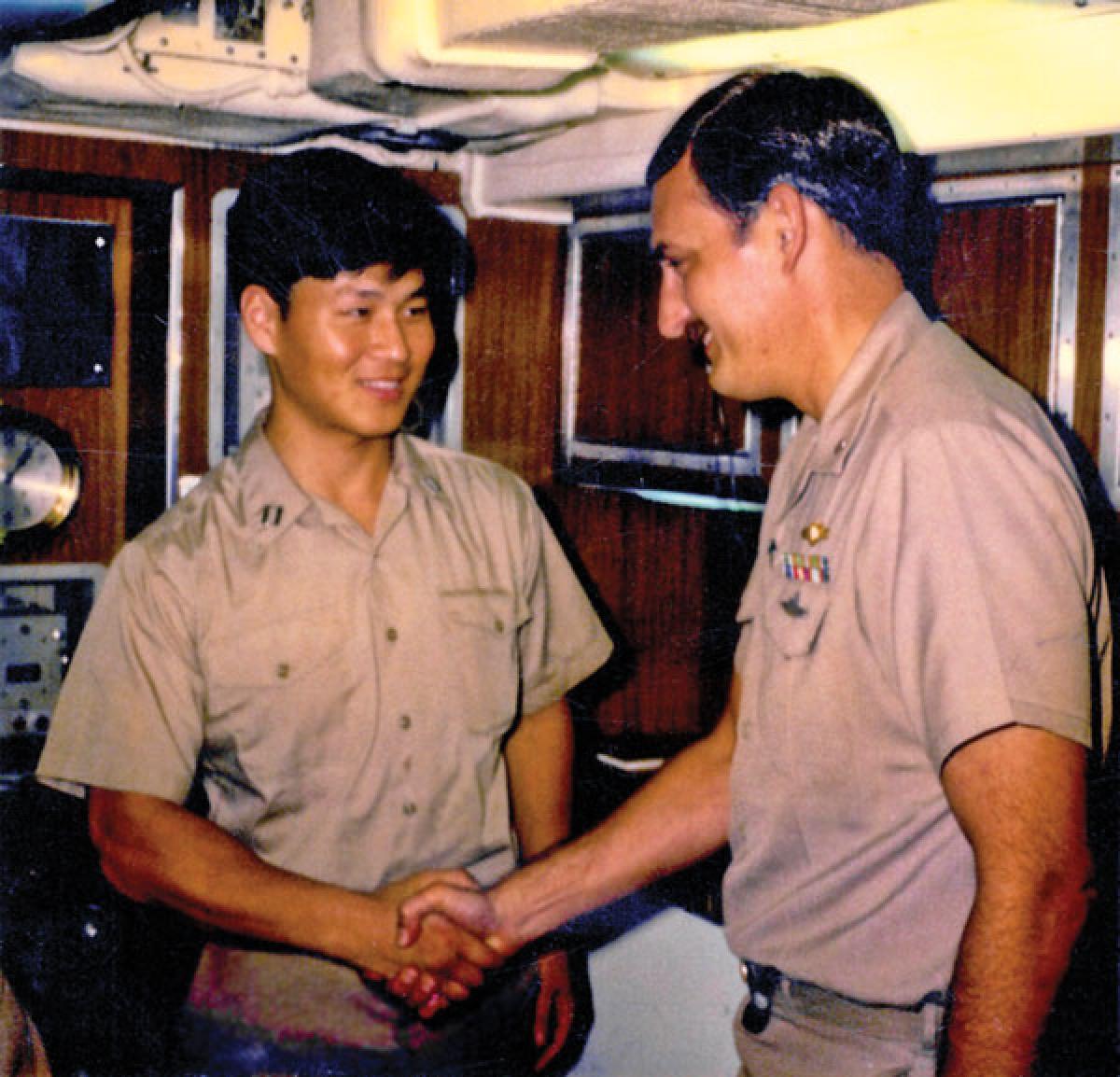Korean-born Jeong Kim came to the United States as a teenager, speaking only limited English and with a passion for learning. Awarded a college scholarship, he earned a part-ownership in a computer start-up company and a commission as a submarine officer. Today, Dr. Kim is president of Bell Labs, a division of Alcatel-Lucent, and a multimillionaire. The Navy helped launch his career.
I joined the Navy because, as an immigrant grateful for having thrived in the United States, I wanted to do something to repay the country that had done so much for me. As it turned out, after seven years as a naval officer, I gained as much as I gave.
Born in Seoul, South Korea, I immigrated with my family to the United States in 1975, when I was 14. At the time, I spoke practically no English, and life for me in my new country was difficult. Two years later, I left home. To support myself, I worked full-time at a convenience store during the night while attending high school during the day.
Then I got my first break. I won a partial scholarship to study electrical engineering at Johns Hopkins University in Baltimore. Early into my studies I became intrigued by computer science. I followed my interests and worked in a small computer start-up company while earning my bachelor’s degree at Hopkins in three years.
I made my decision to become a naval officer well before I graduated from college. Having grown up in Anne Arundel County near the Naval Academy in Annapolis, Maryland, I developed an affinity for the Navy. I applied for the Nuclear Propulsion Officer Candidate Program in my junior year, and was thrilled when I received an offer to serve. As soon as I graduated in 1982, the Navy sent me to two years of training: Officer Candidate School; Nuclear Power School; Nuclear Prototype School; and then Submarine Officer School. Between OCS and the Nuclear Power School, I was on temporary duty at the Navy High Energy Laser Project Office in Crystal City, Virginia.
Finally, I reported for duty on board the USS Norfolk (SSN-714), a Los Angeles–class attack sub homeported at the city for which she was named. During my sea duty, I served as a reactor-control assistant and then as a sonar officer. Life was fast and exciting, and it was everything that any young officer could wish for. After three years at sea, I was transferred to Washington, D.C., to direct part of the “Star Wars” Strategic Defense Initiative overseen by the Defense Nuclear Agency (now the Defense Threat Reduction Agency). It was a challenging and fulfilling assignment. After completing that shore duty, I was eager and ready to get back into the computer-technology business and left active duty in 1989.
Thanks to the Navy, I learned a lot about technology during my seven years in uniform. But I also acquired other skills—in leadership management, responsibility, and decision-making—that aren’t taught well in business schools. All would prove valuable in pursuing my dream—to build my own company.
I got off to a stumbling start. Unable to get start-up financing, I worked as a contract engineer at the Naval Research Lab, earned a Ph.D. in engineering from the University of Maryland, and got interested in a new field that dealt with bridging the gap between existing electronic systems and the integrated-systems technology of the future.
In short order, I created Yurie Systems Inc., a feisty data-networking business that manufactured devices designed to make it easier to send data and video over the Internet. It quickly became a success. The company successfully launched its IPO (Initial Public Offering) in February 1997, and three months later it was ranked the #1 Hottest Company in the United States by BusinessWeek magazine. In 1998 Lucent Technologies paid more than $1 billion to acquire it, and I went to work for Lucent, which later became Alcatel-Lucent. Now I am the president of Bell Labs, a division of Alcatel-Lucent.
I’m not just spouting platitudes when I talk about how much the Navy taught me. Especially in the nuclear-powered submarine service, you get a lot of day-to-day leadership training. When you’re isolated—and, say, dealing with nuclear reactors—you have to make the right decisions. If I made a bad decision, my shipmates could be in danger. Yet I couldn’t do everything myself. I had to learn to trust others and quickly persuade others to trust me. And you learn from every mistake, be it your own or someone else’s. When a boat went aground—fortunately, not ours—I got to see just what happened and why. The incident had stemmed from a series of errors and a combination of equipment failures that resulted in an unforeseen situation. I learned the importance of exercising human judgment even in a rigid military setting.
Serving in the Navy became a personal benchmark for me as well: It was a defining rite of passage in my becoming a full-fledged American. I was 21 years old when I put on the uniform—hard-driving and determined—but although I became a U.S. citizen and succeeded in high school and college, I still felt that I hadn’t quite made the jump.
Serving in the military enabled me to prove to everybody—and to myself—that this really is my country, that I really am an American. It imbued me with the pride and the confidence to stand up with my countrymen, fully comfortable with what I have become. It’s the best of all the gifts that I’ve received.



